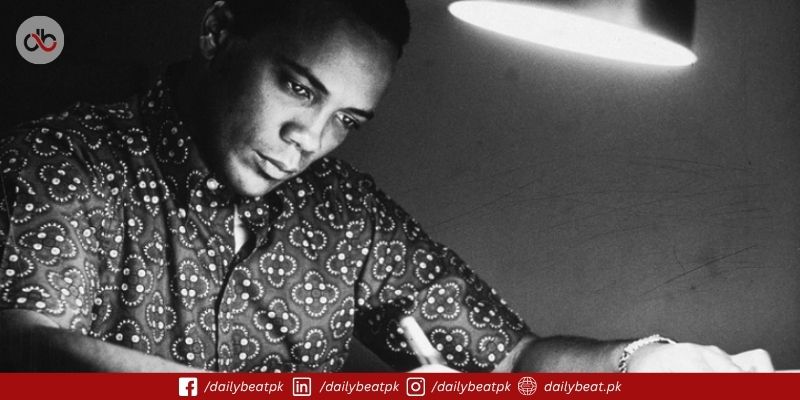Quincy Jones is often called a musical genius. Some say he changed the sound of modern music. Others believe his legacy is inflated by association with big names like Michael Jackson. So, is Quincy Jones a genius who broke genre boundaries, or has time overhyped his career?
This question sparks debate among musicians and fans. Jones has influenced everything from jazz and pop to film scores and television. Still, it is fair to ask if his praise is based more on success than innovation. Let’s look closer at what makes him so special or not.
A Music Legacy Built on Skill and Study
Quincy Jones was born in Chicago in 1933. He later moved to Seattle, where he found his love for music. He began playing the trumpet and quickly developed a deep understanding of jazz. His early training included classical composition in Paris, something rare for African-American musicians then.
In the 1950s and 1960s, he was an arranger for jazz legends like Count Basie, Ray Charles, and Dizzy Gillespie. He did not just play music. He studied it. He understood how to blend instruments, harmonies, and rhythms in new ways.
This background shaped him into more than just a performer. He became a composer, arranger, and later, a powerful producer. From the beginning, Quincy Jones was more than just a talented musician. He was a thinker and a builder.
From Jazz Roots to Pop Domination
Many remember Quincy Jones as the man behind Michael Jackson’s greatest albums. But before Thriller and Bad, he made his mark in jazz. His early compositions showed a deep respect for musical structure and emotion.
He brought that same intelligence with him as he moved into pop and R&B. He produced Lesley Gore’s hit “It’s My Party” in the 1960s. He later worked with Frank Sinatra, showing his ability to move between styles easily.
The 1980s brought his most famous work with Michael Jackson. The music industry was changed by albums like Off the Wall, Thriller, and Bad. Thriller became the best-selling album of all time. But the magic behind the scenes came from Quincy Jones. He arranged songs, selected musicians, and helped shape the sound that took Jackson to the top.
A Master of Many Media
Quincy Jones did not stop at records. He composed scores for more than 30 films. His work includes The Color Purple, The Pawnbroker, and In the Heat of the Night. He also worked on TV themes like The Fresh Prince of Bel-Air and Roots, connecting with millions of viewers.
He was one of the first African-American producers to succeed in Hollywood. His ability to move from one medium to another proves his creative genius. Few artists can claim success in both pop charts and film scores.
He also founded his own media company. He created opportunities for Black talent and broke down racial barriers in the entertainment industry. This role as a cultural leader adds depth to his musical legacy.
The Numbers Speak for Themselves
Let’s talk facts. Quincy Jones has won 28 Grammy Awards and received over 80 nominations. He is one of the most awarded music producers in history. He also won an Emmy, an Oscar, and a Tony, making him a rare EGOT winner.
His list of collaborations includes some of the greatest names in music history. From Aretha Franklin to Miles Davis, from Paul Simon to Stevie Wonder, Jones has shaped the sounds of multiple generations.
He received the Kennedy Center Honor and the National Medal of Arts. These awards reflect not only his success but also his lasting impact on American culture.
Is He Overhyped? The Critics’ View
Some critics argue that Quincy Jones did not invent new musical styles. Instead, they say he rode the wave of existing trends. Others believe his fame grew because he worked with already successful artists.
They also point out that he often worked behind the scenes. He was not the voice or the face of the music. For this reason, some say his influence is overstated.
But these views miss the bigger picture. Producing and arranging are often invisible roles, yet they shape the final product. Without Jones, Thriller would not be what it is today. His ability to elevate others is a form of genius in itself.
The Case for Genius
What sets Quincy Jones apart is his range. He succeeded in jazz, pop, R&B, film, and television. He blended genres before it became popular. He worked across racial lines in a divided industry. He supported new talent and opened doors for artists of color.
He was never just a trend follower. He was often ahead of his time. Whether using synthesizers in the 1970s or producing all-star collaborations like “We Are the World,” Quincy Jones made bold, creative choices that others later followed.
He also stayed relevant across decades. While many artists fade, Jones adapted. He mentored young musicians and embraced digital tools. His influence can still be felt in today’s music.
Final Thoughts: Genius Confirmed
Is Quincy Jones a genius beyond genre? Yes. His work proves it. He mastered multiple forms of music. He used his skills to support others and create something larger than himself.
He deserves his praise. Not because he was famous, but because he built a legacy based on skill, hard work, and creative vision. He did not just follow trends; he helped create them. He was not just a part of history; he shaped it.
In the debate between genius and hype, Quincy Jones stands firmly on the side of genius.















